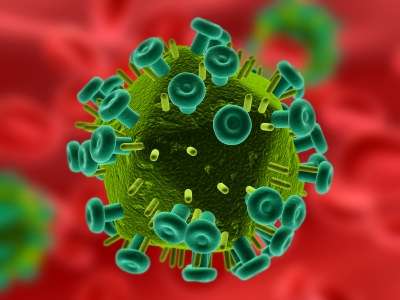Researchers identified new gene which may have the ability to prevent HIV from spreading

A team of researchers led by King's College London has for the first time identified a new gene which may have the ability to prevent HIV, the virus that causes AIDS, from spreading after it enters the body.
Published in Nature today, the study is the first to identify a role for the human MX2 gene in inhibiting HIV. Researchers say this gene could be a new target for effective, less toxic treatments where the body's own natural defence system is mobilised against the virus.
The work was funded by the Medical Research Council and the National Institute for Health Research (NIHR) Biomedical Research Centre at Guy's and St Thomas' NHS Foundation Trust and King's College London. The study was also supported by the Wellcome Trust and European Commission.
Scientists carried out experiments on human cells in the lab, introducing the virus to two different cell lines and observing the effects. In one cell line the MX2 gene was expressed or 'switched on', and in the other it was not, or 'silenced'. They saw that in the cells where MX2 was silenced, the virus replicated and spread. In the cells where the MX2 gene was expressed, the virus was not able to replicate and new viruses were not produced.
The work was led by Dr Caroline Goujon and Professor Mike Malim at the Department of Infectious Diseases, King's College London. Professor Malim said: "This is an extremely exciting finding which advances our understanding of how HIV virus interacts with the immune system and opens up opportunities to develop new therapies to treat the disease. Until now we knew very little about the MX2 gene, but now we recognise both its potent anti-viral function and a key point of vulnerability in the life cycle of HIV.
"Developing drugs to stimulate the body's natural inhibitors is a very important approach because you are triggering a natural process and therefore won't have the problem of drug resistance. There are two possible routes – it may be possible to develop either a molecule that mimics the role of MX2 or a drug which activates the gene's natural capabilities.
"Although people with HIV are living longer, healthier lives with the virus thanks to current effective treatments, they can often be toxic for the body and drug resistance can become an issue with long-term use.
It is important to continue to find new ways of mobilising the body's natural defence systems and this gene appears to be a key player in establishing viral control in people with HIV."
More information: Human MX2 is an interferon-induced post-entry inhibitor of HIV-1 infection, DOI: 10.1038/nature12542
















